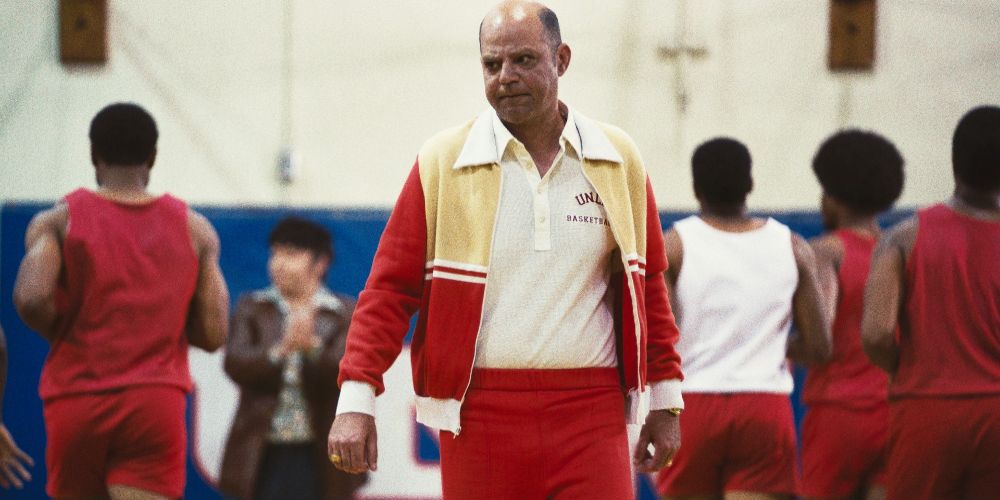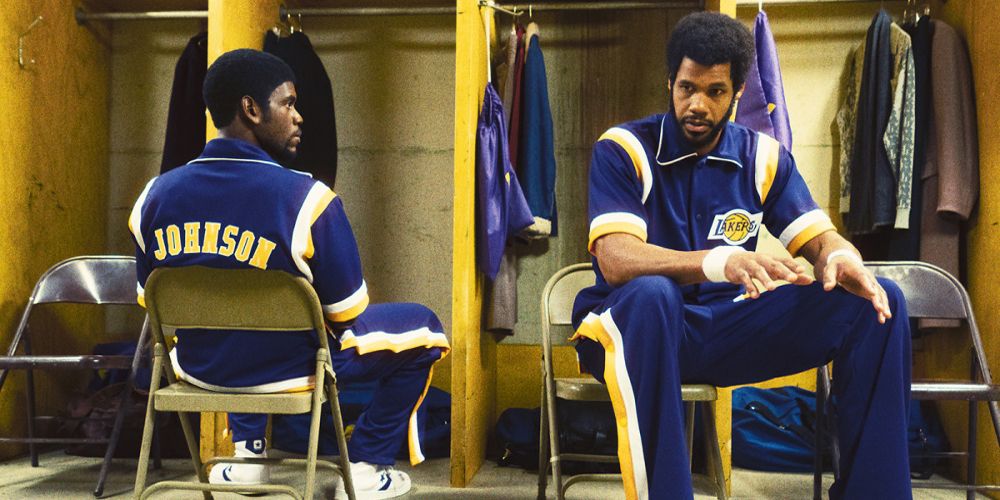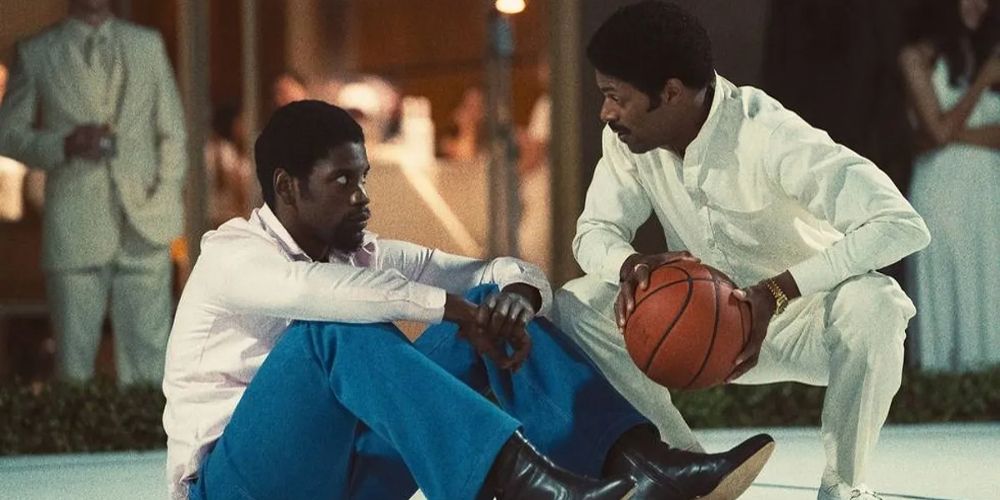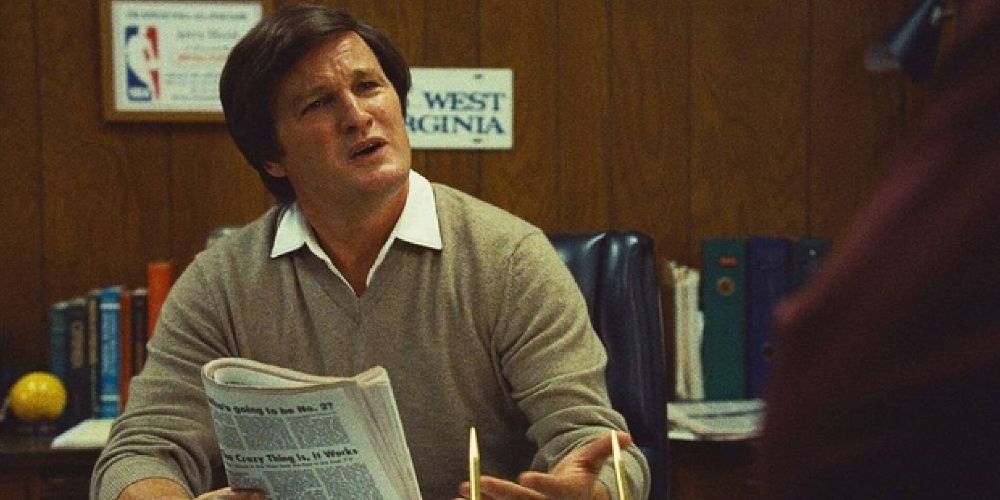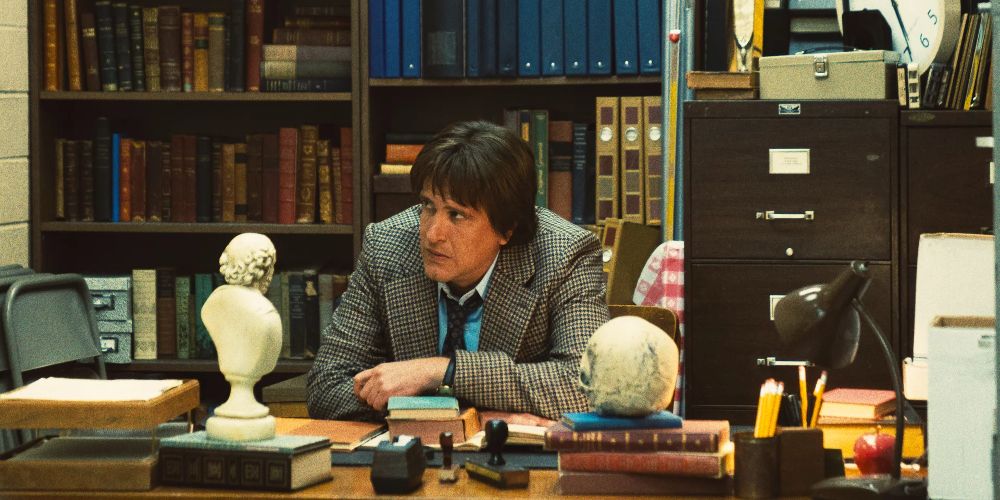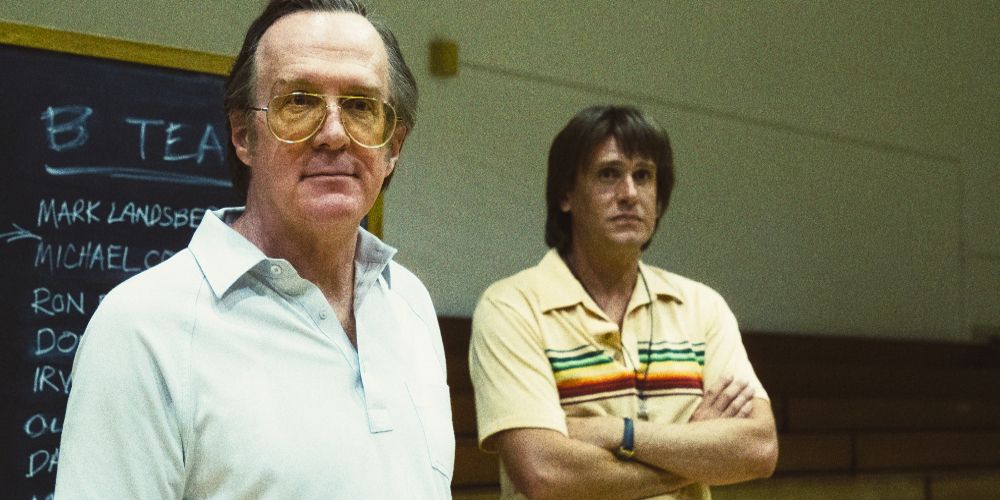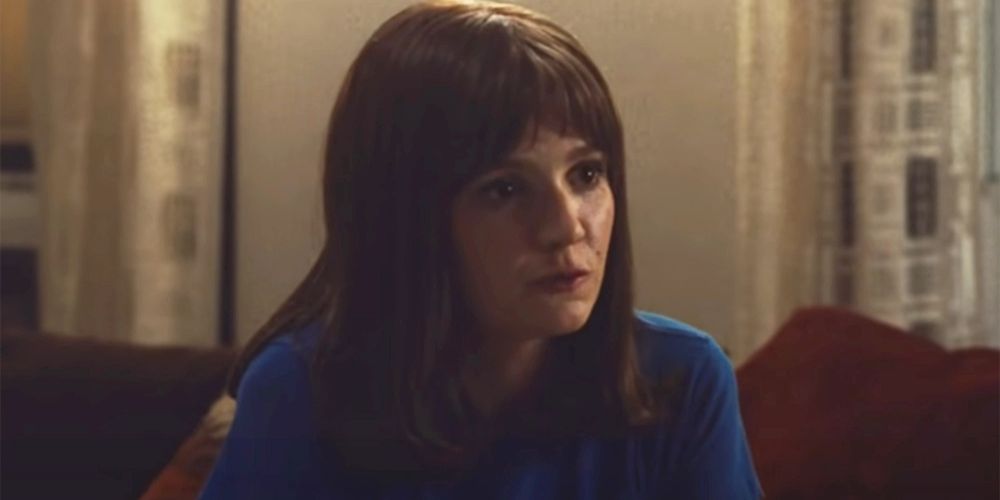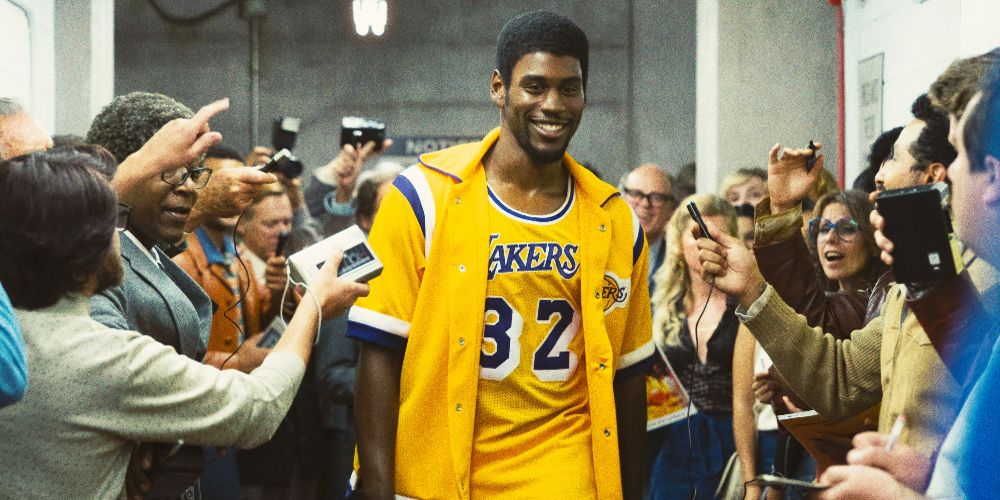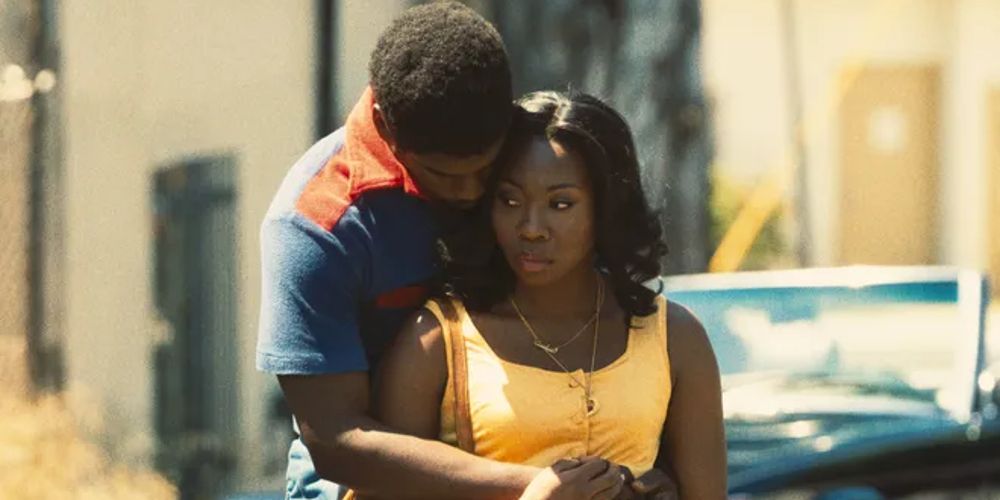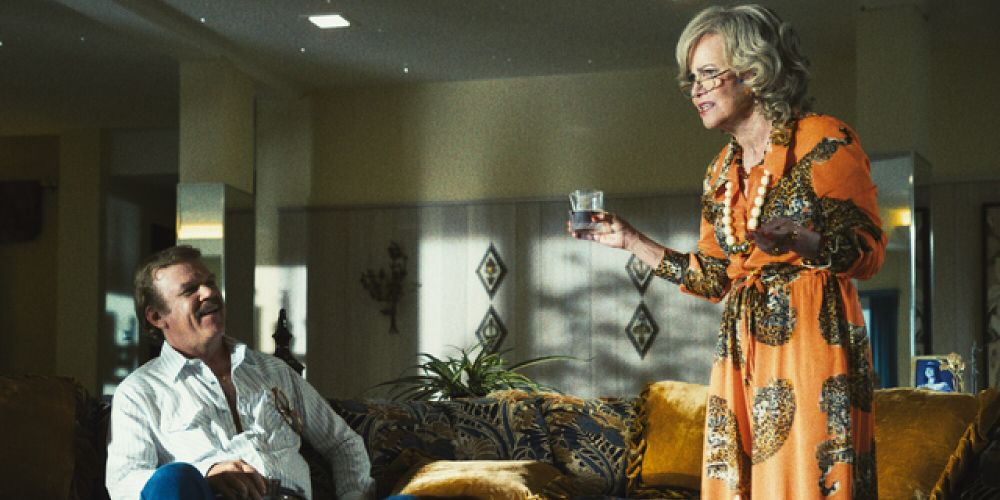For all the flash and fizz that HBO's biographical sports drama Winning Time has, the show has come under fire for being an inaccurate portrayal of the Showtime-era Los Angeles Lakers; so much so that HBO has recently come out and claimed the show is not a documentary and that great dramatic license has been taken to tell the story (per THR).
The show chronicles new Lakers owner Jerry Buss taking over the team in 1979 and turning the sagging franchise into a powerhouse on and off the court. The show gets many things right but several factual inconsistencies have also come to bear.
Jerry Buss Choosing Jerry Tarkanian As Head Coach
Early on in the stellar HBO original series, Jerry Buss has a brilliant idea to recruit UNLV head coach Jerry Tarkanian (Rory Cochrane) to be the new Lakers head coach. While the mafia murder case that would ultimately deny Tarkanian the position was true, Buss did not select Tarkanian to be the Lakers coach as seen onscreen.
Instead, according to Bleacher Report, it was previous Lakers owner Jack Kent Cooke who offered Tarkanian the Lakers head coaching job back in 1977, two years before Buss bought the team. The facts were likely fudged to make Buss seem more responsible for the team's ultimate success. Moreover, in 1979, it was Cooke who offered Tarkanian the $700,000 annual salary, which Buss is shown doing on the show.
Kareem Abdul-Jabbar's Crude Characterization
According to Kareem Abdul Jabbar himself in a blog post on substack, the hall of fame Lakers' Center takes serious issue with the way his character (Solomon Hughes) is blandly portrayed as a grumpy one-note character on the show. In describing the series as dull, Abdul-Jabbar details the "bland characterization" as being "crude stick-figure representations of real people the way Lego Han Solo represents Harrison Ford." Abdul-Jabbar never cursed at child actor Ross Harris, for example.
Abdul-Jabbar adds, "Each character is reduced to a single bold trait. They are caricatures, not characters." While many on-court facts are slightly fudged on the show, the most common criticism is the inaccurate depictions of the real-life main characters.
Norm Vs. Magic At The Playboy Mansion
When Magic Johnson (Quincy Isaiah) joins the team as a rookie, the veteran players feel threatened by his massive talent. Magic's teammate Norm Nixon (DeVaughn Dixon) decides to challenge Magic to a game of one-on-one at the Playboy Mansion, which never actually occurred.
According to Norm Nixon via a clnsmedia.com interview, Nixon never played Magic in a game of one-on-one to determine on-court supremacy, nor did they play basketball at the Playboy Mansion. While Norm admits to attending the mansion, he stated that his wardrobe at the event during the show is completely inaccurate.
Jerry West's Depiction
The most damning thing the streamable sports drama gets wrong is the insensitive depiction of Jerry West (Jason Clarke), who is painted as a megalomaniacal head coach. He's rude, crude, foul-mouthed, and violently hot-tempered, "false and defamatory" inaccuracies that have forced the real Jerry West to potentially take up the matter with Supreme Court after writing a legal letter to HBO (via Lakers Daily). The scene in which West breaks golf clubs in anger is not accurate.
According to Abdul-Jabbar in his blog post, "it's a shame the way they treat Jerry West, who has openly discussed his struggles with mental health, even depression. They turn him into Wylie E. Coyote to be laughed at."
Paul Westhead's Early Struggles
When Lakers interim coach Paul Westhead (Jason Segel, in one of his best TV roles) suddenly takes over the team when head coach Jack McKinney (Tracy Letts) has a near-fatal bicycle accident, the show depicts Westhead really struggling out of the gate. For dramatic purposes to show the team slowly improving to become a contender over time, the show paints Westhead as unsure, unconfident, and poor at his job as he initially takes over the team.
In reality, Westhead hit the ground running and led his team to instant success. As head coach, Westhead never lost more than two games in a row and had four separate five-game winning streaks before winning the NBA championship in the 1980 season (according to silverscreenandroll.com).
Paul Westhead's Nasty Confrontation With Jack McKinney
When Jack McKinney finally mounts a comeback attempt, he has a nasty confrontation with Paul Westhead in the locker room during a post-game celebration. However, according to silverscreenandroll.com via Sports Illustrated, this never took place as McKinney rarely if ever returned to the Lakers' facilities.
For dramatic purposes, the scene was created from whole cloth to give Westhead an ultimatum between choosing Jack or Pat Riley (Adrien Brody) as his assistant head coach. Jack storms out feeling betrayed on the show but none of this occurred in reality.
Jeanie Buss' Chronology
Winning Time introduces Jerry Buss's daughter Jeanie Buss (Hadley Robinson) as a fresh-faced 17-year-old who goes to work for her dad in the Lakers organization to help give the stadium a glossy makeover. According to Kareem Abdul-Jabbar in his blog post, this is more Hollywood fabrication, as Jeanie did not join the Lakers as "a naive daddy's girl." She joined the team much later after she had gained higher education and earned her position.
Per Abdul-Jabbar, Jeannie "didn't come to work for them until after she'd earned her business management degree from USC and been general manager of the L.A. Strings, a World Team Tennis Franchise. Making her a girl-child (on the show) belittles her early achievements on her own."
Magic Johnson's Character
While Quincy Isaiah gives a great turn as the magnetic Magic Johnson, the real-life Laker great has also publicly rebuked the show for being inaccurate, his portrayal in particular. On The Crossover podcast (via Apple), Johnson was asked if he thought the show was accurate, to which he replied "of course I know it's not...there's no Lakers around telling that story."
According to Abdul-Jabbar in his blog post, Magic is also portrayed as a one-note "Sexual Simpleton," which completely glosses over the full dimensionality of the young man coming out of college in Michigan.
Magic Impregnating Rhonda
In episode 7 of the highly-rated HBO original series, Magic Johnson is shown having a sexual affair with Rhonda (Chelsea M. Davis), a friend of his eventual wife Cookie (Tamera Tomakili), which culminates in Ronda's pregnancy. While the character is a figment to convey Magic's sexual proclivities at the time, there is no proof that Magic ever knew a woman named Rhonda, much less impregnated her in real life.
In reality, Johnson has three-known children to date: EJ and Elise Johnson, who he had with his wife Cookie, and Andre Johnson, who he had with a woman named Melissa Mitchell. Cheating on his girlfriend Cookie and impregnating her friend are both unflattering and inaccurate at once.
JoAnn Mueller Owned The Lakers
When Jerry Buss admits that he is financially over his head upon buying the Lakers, his mother suggests he put the team in his separated wife, JoAnne Mueller's, name. After Jeanie Buss convinces her it's a good idea, JoAnn agrees and takes ownership of the team.
Alas, by all accounts, none of this ever occurred. Jerry's wife JoAnn never took ownership of the Lakers and Jerry never took such advice from his mother. All of this was fabricated to hike the dramatic stakes of Buss' great big gamble on the Showtime-era Lakers and make his rewards seem all the more triumphant in the end.


